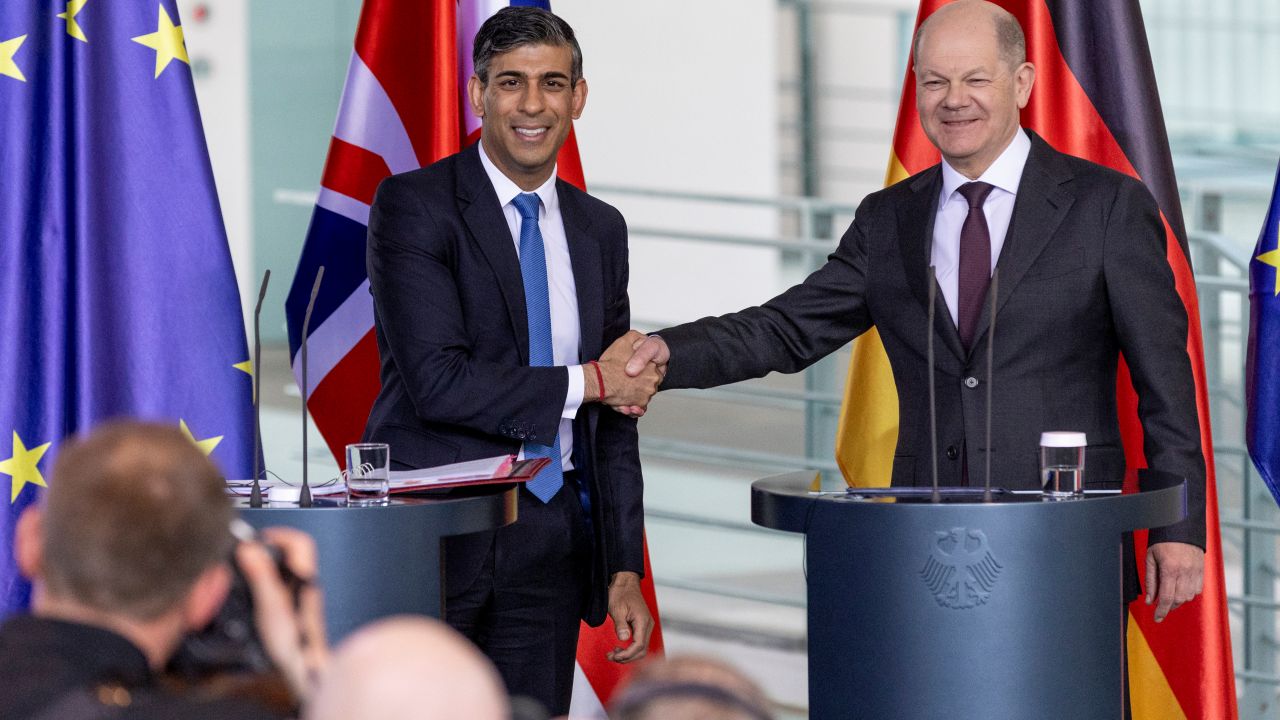British Prime Minister Rishi Sunak and German Chancellor Olaf Scholz solidified closer defense cooperation on Wednesday, emphasizing the imperative for Europe to stand united in aiding Ukraine against Russia’s aggression.
Sunak celebrated the strengthened ties with Germany, following his recent declaration to elevate defense spending to 2.5% of GDP annually by 2030, challenging other European nations to follow suit.
The leaders disclosed plans to advance Remote-Controlled Howitzer 155mm Wheeled Artillery Systems (RCH 155) and explore collaborative ventures in energy projects, including German energy investments.
“We’ve committed to delivering a new framework for our cooperation on defense, and we’re delivering an immediate expansion of our industrial cooperation,” Sunak asserted during a joint news conference with Scholz, reaffirming unwavering support for Ukraine.
Despite disruption from a few protesters shouting “free Palestine,” both leaders emphasized their enduring solidarity with Ukraine.
However, when queried about Germany’s refusal to supply Taurus cruise missiles to Kyiv, Scholz defended his stance, indicating no shift in his decision.
“Perhaps I can express the hope that other countries with Patriot systems will reconsider whether they can spare one (for Ukraine) amid all the other security challenges,” Scholz remarked, underscoring the critical need for increased deliveries of air defense systems.
Germany recently pledged to provide a Patriot air defense system and missiles to Ukraine to bolster defenses against escalating Russian assaults on energy infrastructure.
The meeting in Berlin marked Sunak’s inaugural visit to Germany since assuming office in October 2022.
While Sunak has curtailed international travel, focusing on domestic policy in the run-up to this year’s election, he seized the opportunity to announce a significant surge in defense spending.
Regarding financing concerns raised by some economists, Sunak assured that the increase was fully funded, drawing from reductions in civil servant numbers and reallocating funds earmarked for research and development.
“Prioritization is integral to governance, and I’ve chosen to prioritize defense because it’s the right thing for our country,” Sunak affirmed.
The opposition Labour Party, poised to win the upcoming election, pledged to scrutinize the details of Sunak’s announcement to ensure its feasibility.
“Labour will conduct a strategic defense and security review in the first year of government to assess threats, evaluate the state of our Armed Forces, and determine the necessary resources,” declared Labour’s defense policy chief, John Healey.


